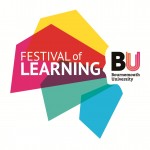I took the day off on Wednesday last week and did some really cool stuff in London, including watching Oscar Pistorius in the 100m semi-finals at the Olympic Stadium, having a lovely veggie lunch in Neal’s Yard, learning about Londinium at the Museum of London, and visiting a street art exhibition by Mr Brainwash. A fabulous, if not quite bizarre, day!
 We also visited the Grant Museum of Zoology at the UCL campus at Euston which was amazing. This is a tiny museum, only one room, but it is jam packed with skeletons, pickled things in specimen jars and taxidermied animals, all housed within a Victorian-era style room. You almost have to blow the dust from the exhibits! Particular highlights were a jar stuffed full of moles (both repulsive and fascinating), a domestic cat with half its skin peeled back, a selection of elephant skulls, a display of pickled animal brains, and a badly taxidermied owl (why can they never get the eyes right?!). I also noticed a number of iPads set up around the museum for visitors to engage in dialogue about the exhibits either by adding comments or by answering questions about the museum, conservation policy, the role of science in society, etc. Apparently the responses are used to help the museum to make decisions about how it should be run and the information gathered is routinely shared with other museums. The museum was free to get in and I thoroughly recommend it as an excellent way to spend an hour in London.
We also visited the Grant Museum of Zoology at the UCL campus at Euston which was amazing. This is a tiny museum, only one room, but it is jam packed with skeletons, pickled things in specimen jars and taxidermied animals, all housed within a Victorian-era style room. You almost have to blow the dust from the exhibits! Particular highlights were a jar stuffed full of moles (both repulsive and fascinating), a domestic cat with half its skin peeled back, a selection of elephant skulls, a display of pickled animal brains, and a badly taxidermied owl (why can they never get the eyes right?!). I also noticed a number of iPads set up around the museum for visitors to engage in dialogue about the exhibits either by adding comments or by answering questions about the museum, conservation policy, the role of science in society, etc. Apparently the responses are used to help the museum to make decisions about how it should be run and the information gathered is routinely shared with other museums. The museum was free to get in and I thoroughly recommend it as an excellent way to spend an hour in London.
 So you may be wondering why I am writing about this on the BU Research Blog. Those of you who are regular readers of the blog may remember a post I added last summer about the amazing La Brea Tar Pits in Los Angeles (Excellent example of public engagement in research, resulting in societal impact) in which I discussed how the museum has made research part of the exhibition and visitors can see researchers at work and discuss the excavation with them. Well the Grant Museum of Zoology was similar and is no doubt doing wonders for UCL’s public engagement and research impact work. Not only does visiting the museum give members of the public the opportunity to venture onto UCL’s campus, the researchers work on-site and visitors can engage in dialogue with researchers at work. Each week a team of PhD students from disciplines across UCL spend time in the museum to engage with visitors – discussing their research as well as student life. The museum also features work from UCL researchers who are invited to co-curate exhibitions and installations about their current research with the aim of giving visitors a glimpse of what happens inside the University’s labs and workshops. The museum also regularly hosts activity sessions for school children from across London giving them the opportunity to learn from the collection.
So you may be wondering why I am writing about this on the BU Research Blog. Those of you who are regular readers of the blog may remember a post I added last summer about the amazing La Brea Tar Pits in Los Angeles (Excellent example of public engagement in research, resulting in societal impact) in which I discussed how the museum has made research part of the exhibition and visitors can see researchers at work and discuss the excavation with them. Well the Grant Museum of Zoology was similar and is no doubt doing wonders for UCL’s public engagement and research impact work. Not only does visiting the museum give members of the public the opportunity to venture onto UCL’s campus, the researchers work on-site and visitors can engage in dialogue with researchers at work. Each week a team of PhD students from disciplines across UCL spend time in the museum to engage with visitors – discussing their research as well as student life. The museum also features work from UCL researchers who are invited to co-curate exhibitions and installations about their current research with the aim of giving visitors a glimpse of what happens inside the University’s labs and workshops. The museum also regularly hosts activity sessions for school children from across London giving them the opportunity to learn from the collection.
This struck me as an excellent example of public engagement and research impact on many different levels and theimportance of generating a two-way dialogue with public audiences around research. I wondered how we could replicate this at BU and my immediate thoughts were that we can’t – we don’t own any prime real estate in London that we could convert into a museum for starters! However there are a number of key features that make this museum a success in terms of public engagement and research impact – including the crucial role of PhD students in public engagement activities, the benefits of presenting research findings in non-traditional academic outlets, inviting members of the public onto campus, encouraging feedback and discussion, and working with schools to engage school children with research and life at a university.
We already do some of this at BU and have significantly invested recently in support for public engagement, which is one of the enablers underpinning the BU2018 strategy. The BU Festival of Learning scheduled for June 2013 provides a fabulous opportunity to showcase the breadth of activity from across the University, and RKE Development and Operations are always happy to work with colleagues on developing ideas for public engagement / impact activities. If you have any ideas for public engagement activities or would like support from us in developing ideas, then contact my colleague Rebecca Edwards who will be be happy to talk your ideas through with you.
 Developing a public engagement event – Workshop
Developing a public engagement event – Workshop FREE Public Engagement Training for Environmental Researchers
FREE Public Engagement Training for Environmental Researchers










 SPROUT: From Sustainable Research to Sustainable Research Lives
SPROUT: From Sustainable Research to Sustainable Research Lives BRIAN upgrade and new look
BRIAN upgrade and new look Seeing the fruits of your labour in Bangladesh
Seeing the fruits of your labour in Bangladesh Exploring Embodied Research: Body Map Storytelling Workshop & Research Seminar
Exploring Embodied Research: Body Map Storytelling Workshop & Research Seminar Marking a Milestone: The Swash Channel Wreck Book Launch
Marking a Milestone: The Swash Channel Wreck Book Launch ECR Funding Open Call: Research Culture & Community Grant – Application Deadline Friday 12 December
ECR Funding Open Call: Research Culture & Community Grant – Application Deadline Friday 12 December MSCA Postdoctoral Fellowships 2025 Call
MSCA Postdoctoral Fellowships 2025 Call ERC Advanced Grant 2025 Webinar
ERC Advanced Grant 2025 Webinar Update on UKRO services
Update on UKRO services European research project exploring use of ‘virtual twins’ to better manage metabolic associated fatty liver disease
European research project exploring use of ‘virtual twins’ to better manage metabolic associated fatty liver disease